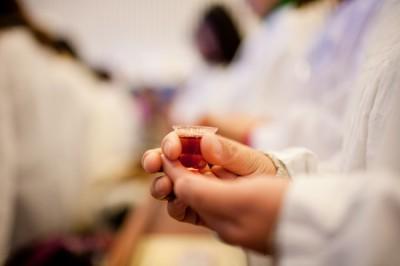During the COVID-19 period, some believers received the Holy Communion at home by themselves. However, this practice caused great controversy in the church, as some queried whether it was useful or appropriate. From the perspective of the ecumenical Church, such behavior was very inappropriate.
They thought only the pastor had the authority to preside over the ceremony; only the bread and cups consecrated by them affected. Therefore, it was very inappropriate for believers to receive the bread and the wine at home.
However, some denominations that oppose the institutional church believed that individuals also had the authority to eat unleavened bread and drink grape juice at home. All believers are a priest.
When the churches in China ceased their gatherings due to the pandemic's outbreak, some foreign believers received the Communion at home, following the live video broadcasted by their churches.
In many people's eyes, this practice only had the function of commemorative but lacked the effect of Communion. They regarded the Holy Communion as an essential way to connect with the Lords' life, definitely not a ritual performed by eating unleavened bread and drinking grape juice.
To make exact was that it was not just to eat or drink, but to commune with each other through feasting with Jesus. What was more, the Bible says, "For anyone who eats and drinks without recognizing the body of the Lord eats and drinks judgment on himself."
Therefore, somebody advised that though the church was closed, if the location was at low risk, the pastor might, at his discretion, come to the believers' home to preside over the ceremony for those in desperate need. Following the COVID-19 protocols and protecting themselves against the virus, the pastors could bring one or two staff co-workers to avoid crowds.
In short, the believers must receive the Holy Communion with awe and not merely perform religious rituals at home.
(The original article is published by Gospel Times.)
- Translated by Abigail Wu












